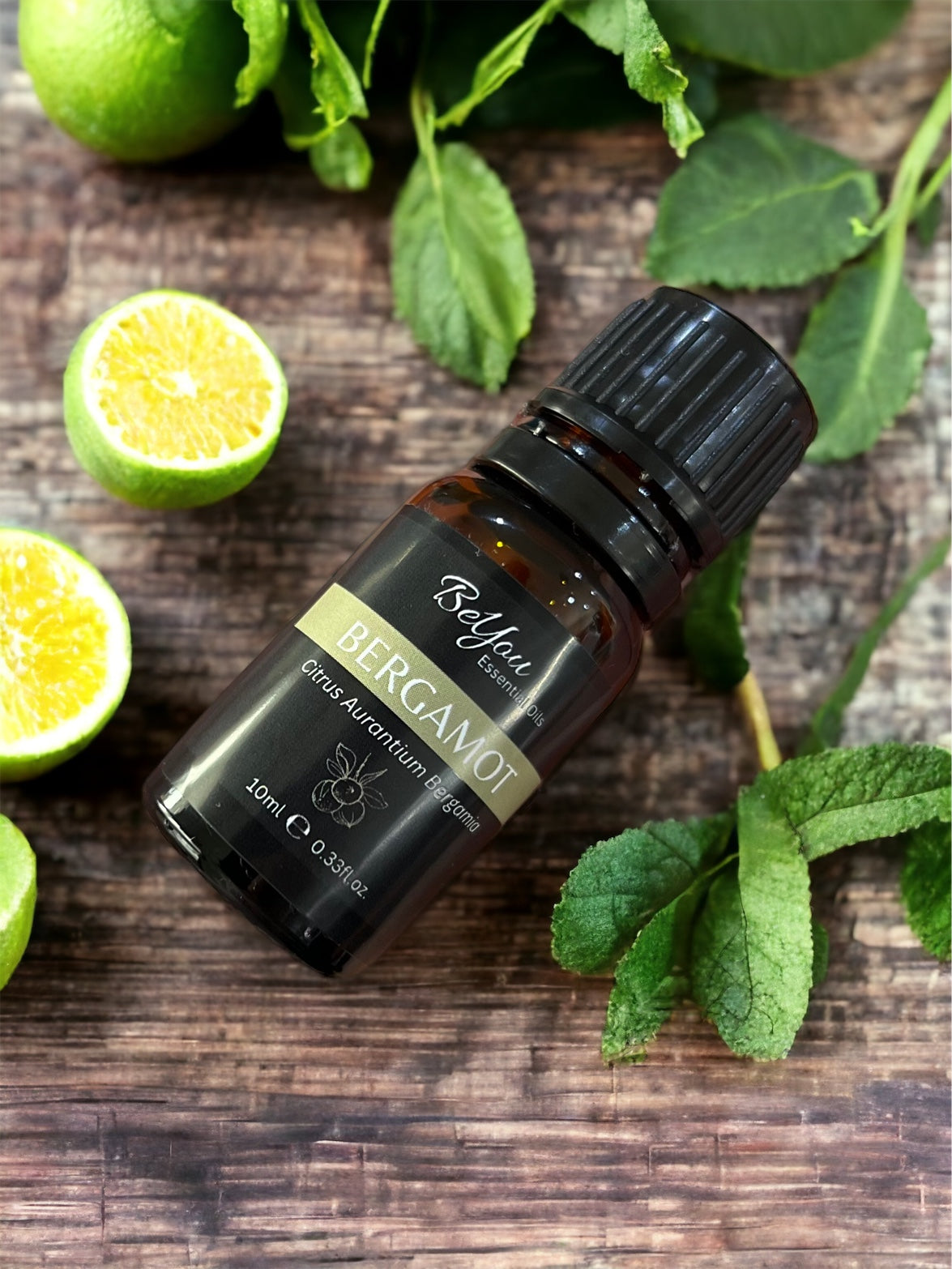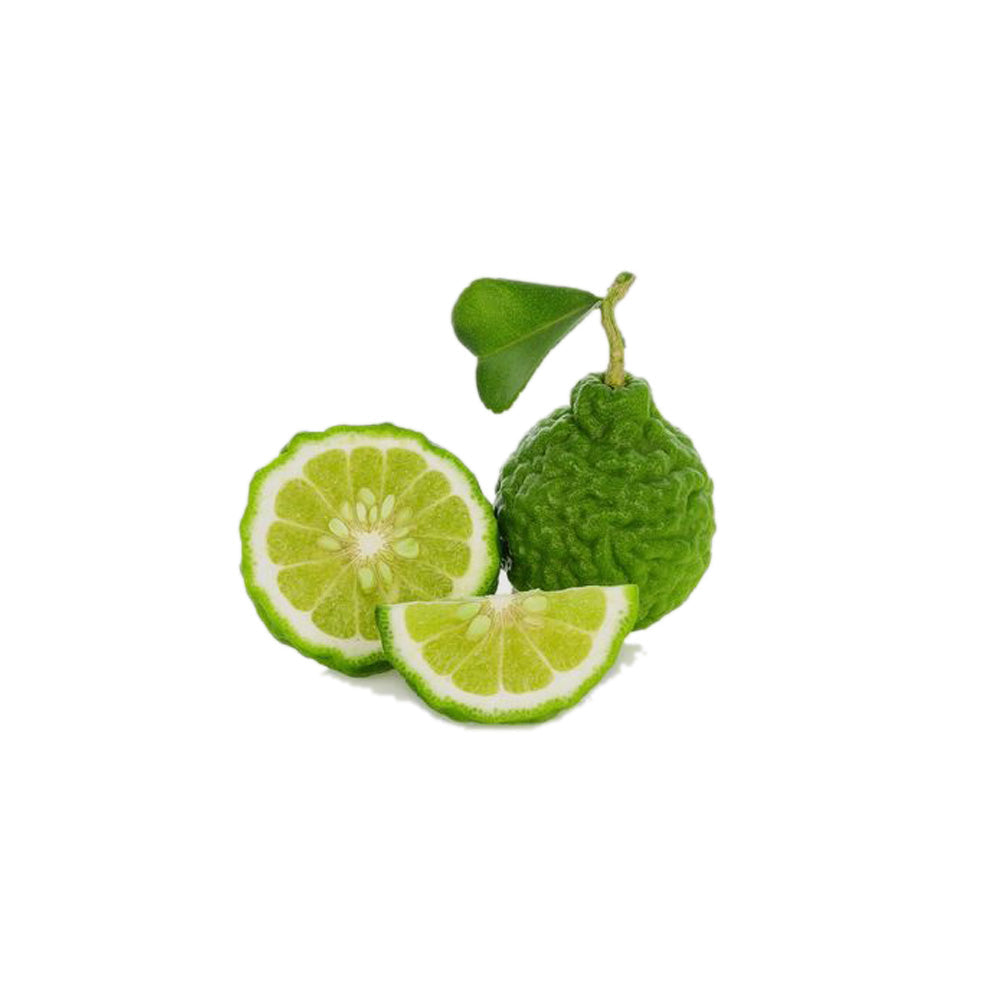Bergamot Pure Essential Oil
Bergamot Pure Essential Oil
Low stock: 3 left
Couldn't load pickup availability
DESCRIPTION
DESCRIPTION
Bergamot (Citrus bergamia) essential oil offers a range of benefits and can be utilized for hormone and immune support. Here are some details on its benefits and how to use it:
BENEFITS:
- Mood enhancement: Bergamot oil has uplifting properties that can help improve mood, promote relaxation, and reduce feelings of stress and anxiety.
- Hormonal balance: It is believed that bergamot oil may support hormonal balance by assisting in regulating hormone levels in the body.
- Skin care: Bergamot oil is commonly used in skincare products due to its cleansing and purifying properties. It can help promote healthy-looking skin and may assist in addressing skin concerns such as acne and blemishes.
- Immune support: Bergamot oil possess antimicrobial properties that can help fight against harmful bacteria, viruses, and fungi. This can support the body's natural defense mechanisms. It also contains compounds with antioxidant properties, such as flavonoids. Antioxidants help protect cells from oxidative stress and support overall immune health.
PRODUCT DETAILS
PRODUCT DETAILS
Botanical Name:Citrus Bergamia
Derived from: Ripe fruit peels
Origin: Italy
Extraction: Cold Pressed Essential Oil
Note: Top Note
Aroma: Sweet, citrus, green with slightly floral, balsamic undertones
- Vegan
- Non-GMO
- Not tested on animals
- Halal
- No carrier oils, 100% pure essential oil
Size: 10ml
DIRECTIONS FOR USE
DIRECTIONS FOR USE
HOW TO USE:
- Diffuser: Add 4-8 drops of Bergamot essential oil to a diffuser filled with water according to the manufacturer's instructions. Turn on the diffuser and let it disperse the aroma throughout the room. This method allows you to enjoy the uplifting and mood-enhancing properties of Bergamot oil.
- Dilution: For topical application, it is recommended to dilute bergamot essential oil in a carrier oil at a 2% dilution. This translates to approximately 4 drops of bergamot oil in 10ml of a suitable carrier oil, such as sweet almond oil or jojoba oil. Mix well before use.
- Shower: Prior to taking a shower, add 4-8 drops of bergamot essential oil to a washcloth or loofah. Place it on the floor of the shower, away from direct water flow, and allow the steam to activate the oil. The invigorating aroma of bergamot will create a spa-like experience and support a positive mood.
- Bath: Add 4-8 drops of bergamot essential oil to a bathtub filled with warm water. Agitate the water to disperse the oil. Enjoy a relaxing bath, allowing the steam to release the aromatic properties of the oil. This method can help promote relaxation, uplift the mood, and support hormone balance.
BLENDS WITH
BLENDS WITH
BLENDS WELL WITH:
- Lavender
- Clary Sage
- Geranium
- Lemon
- Ylang Ylang
- Roman Chamomile
- Patchouli
- Sandalwood
- Frankincense
- Jasmine
SAFETY PRECAUTION
SAFETY PRECAUTION
SAFETY PRECAUTIONS:
- Bergamot essential oil is photosensitive, which means it can increase the skin's sensitivity to sunlight. Avoid direct sunlight or UV exposure for at least 12 hours after topical application.
- Perform a patch test before using bergamot oil topically to check for any potential skin sensitivities or allergies.
- Consult with a qualified healthcare professional or aromatherapist before using bergamot oil, especially if you have any specific health concerns, medical conditions, pregnant or breastfeeding or are taking medications.
- Keep bergamot essential oil out of reach of children and store it in a cool, dry place, away from direct sunlight.



FAQs
-
What are essential oils?
Essential oils are highly concentrated plant extracts that capture the natural fragrance and beneficial properties of plants. They are typically obtained through processes like steam distillation or cold-pressing of various plant parts such as leaves, flowers, stems, or roots. Essential oils are known for their aromatic qualities and are commonly used in aromatherapy, personal care products, and natural remedies. -
How are essential oils used?
Essential oils can be used in several ways. Here are a few common methods:
- Aromatherapy: Inhalation of essential oils using diffusers, steam inhalation, or adding a few drops to a bowl of hot water.
- Topical application: Diluting essential oils with carrier oils (such as coconut or jojoba oil) and applying them to the skin for massage or skincare purposes.
- Internal consumption: Some essential oils are safe for internal use, but it is crucial to consult a qualified professional before ingesting them, as not all oils are suitable for internal consumption.
-
What are the potential benefits of essential oils?
Essential oils are believed to offer a range of potential benefits, but it's important to note that scientific research on their effectiveness is still evolving. Some commonly cited benefits include:
- Aromatherapy for relaxation, stress relief, and mood enhancement.
- Skin and hair care: Many essential oils are used in skincare products for their potential antimicrobial, anti-inflammatory, and soothing properties.
- Natural cleaning: Some essential oils possess antimicrobial properties and can be used as natural alternatives for household cleaning products.
- Potential respiratory support: Certain essential oils, such as eucalyptus or peppermint, are known for their potential respiratory benefits when inhaled.
-
Are there any risks or precautions associated with essential oils?
While essential oils are generally safe when used properly, there are a few important considerations:
- Skin sensitivity: Some essential oils can cause skin irritation or allergic reactions, especially when used undiluted or on sensitive skin. Always perform a patch test and dilute oils before applying them topically.
- Inhalation precautions: Not all essential oils are safe for inhalation, especially for individuals with respiratory conditions or sensitivities. Certain oils may trigger allergies or respiratory distress.
- Internal use: Internal consumption of essential oils should only be done under the guidance of a qualified professional. Many oils are toxic when ingested, and improper use can lead to adverse effects.
- Pregnancy and children: Some essential oils are not safe for use during pregnancy or on young children. It's crucial to consult healthcare professionals or certified aromatherapists for guidance in these situations.
Remember, it's always wise to consult with a healthcare professional or aromatherapist before using essential oils, especially if you have any underlying health conditions or concerns.
5. What is your extraction/collection process?
Refer to our Blogs for a detailed explanation about our Extraction and Collection process.
6. Are the plants sprayed with any chemicals which may lead to being included in the process of collecting the oil?
No, as our suppliers are certified there is no chemicals or pesticides being used on the plants, which are confirmed as each batch is analysed by microbiologist for the presents of bio-hazardous micro-organisms (such as bacteria and mould), heavy metals and pesticides.
7. Are the oils 100% organic as well as not diluted with fragrances or anything other than the plant itself?
Yes, all our Essential and Absolute oils are 100% organic, pure, with no carrier oils added, or fragrances.





